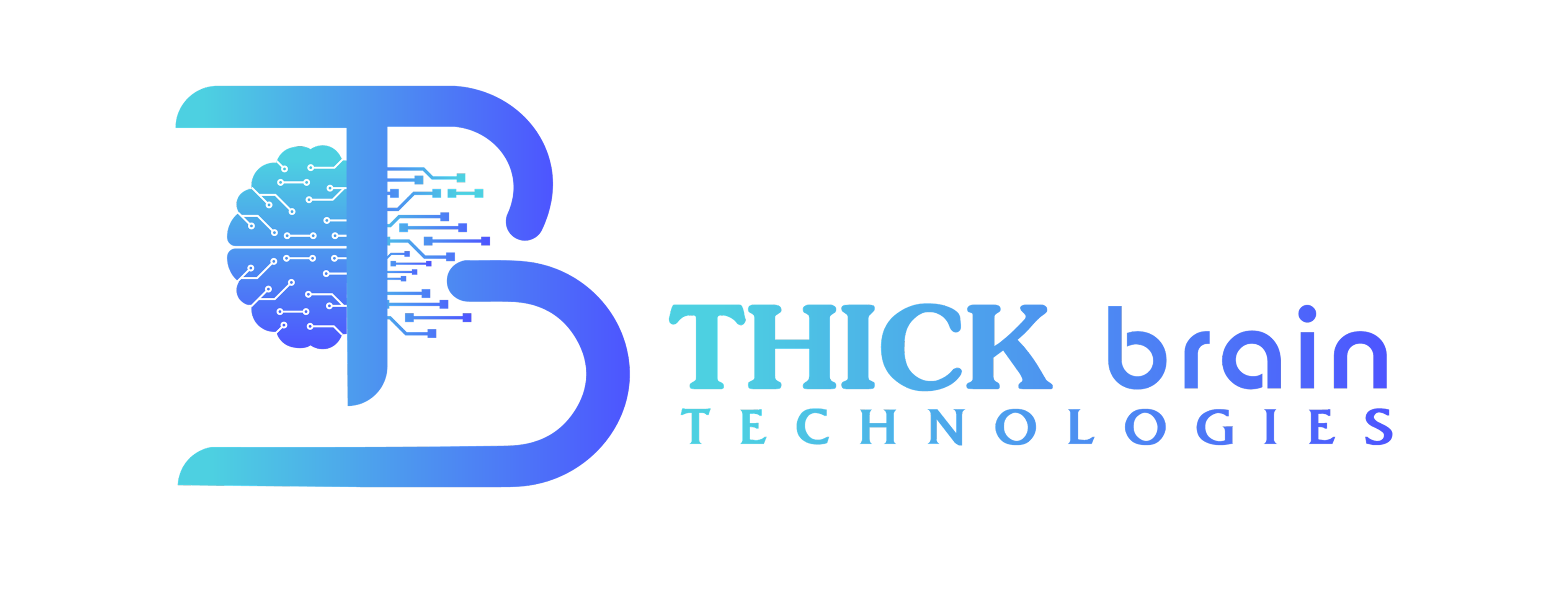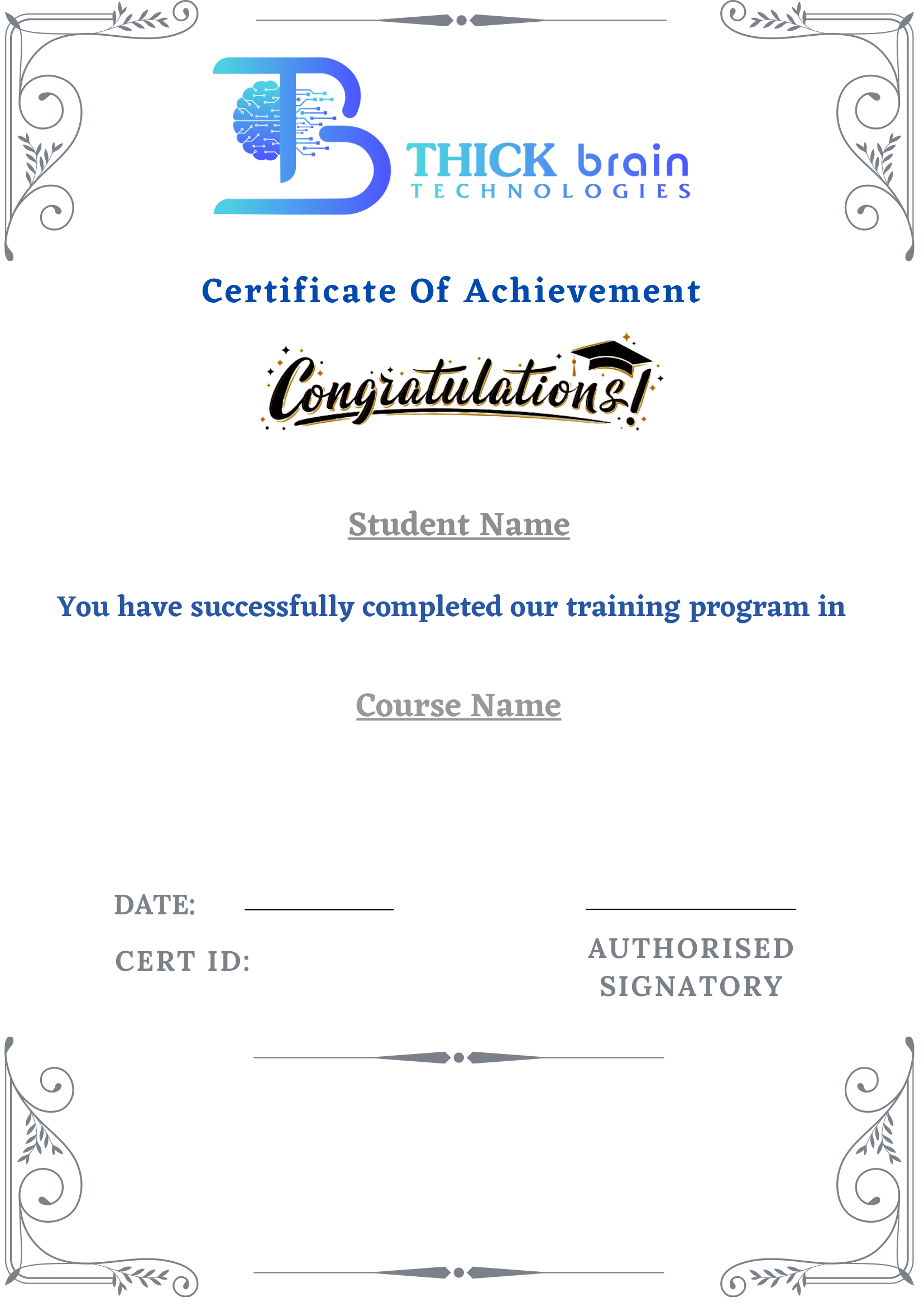Upcoming Batch Schedule for Full Stack Master Program in Bangalore
New Tech Trainer provides flexible batch timings to all our students.If this schedule doesn’t match please let us know.
| 10-06-2021 | Thu (Mon – Fri)WEEKDAYS BATCH | @08:00 AM (IST)(Class 1Hr – 1:30Hrs) / Per Session | Get Quotes |
| 10-06-2021 | Thu (Mon – Fri)WEEKDAYS BATCH | @08:00 AM (IST)(Class 1Hr – 1:30Hrs) / Per Session | Get Quotes |
| 10-06-2021 | Thu (Mon – Fri)WEEKDAYS BATCH | @08:00 AM (IST)(Class 1Hr – 1:30Hrs) / Per Session | Get Quotes |
|
Can’t find a batch you were looking for? |
|||
OVERVIEW of Full Stack Master Program Training in Bangalore
In the tech-driven world, the ability to create seamless web applications is a prized skill. TBT’s Full stack master program training equips you with expertise to navigate modern development challenges. Whether you’re starting from scratch or enhancing existing skills, embracing full stack development opens doors to exciting opportunities. Remember, adaptability and a passion for learning will be your strongest allies on this journey. Whether you’re a beginner or a seasoned developer, embracing full stack development can open doors to a world of exciting opportunities.
Key Benefits of Best Full Stack Master Program Online Training
Versatility in Skill-set
A comprehensive full stack master program equips you with a wide array of skills. From front-end development, which focuses on user interfaces, to back-end development, dealing with databases and server management, you'll gain a holistic understanding of the entire development process. This versatility makes you an asset to any tech team.
End-to-End Development
With the skills acquired in a full stack master program, you can handle end-to-end development of applications. From conceptualizing and designing user interfaces to implementing complex back-end functionalities, you'll have the ability to see a project through from start to finish.
Effective Communication
Being well-versed in both front-end and back-end aspects allows you to effectively communicate with different team members. You can bridge the gap between designers, front-end developers, and back-end engineers, resulting in smoother collaboration and better project outcomes.
Career Opportunities
Completing a reputable full stack master program opens the door to a plethora of career opportunities. Full stack developers are highly sought after by companies of all sizes, from startups to large enterprises. Your versatile skill-set will make you an attractive candidate for a wide range of job roles.
Rapid Prototyping
In the fast-paced world of technology, rapid prototyping is essential. With full stack skills, you can swiftly develop prototypes and minimum viable products (MVPs), allowing you to test ideas and gather feedback from users before committing to a full-scale development process.
Cost Efficiency for Startups
If you're inclined towards entrepreneurship or working with startups, being a full stack developer can be incredibly cost-effective. Instead of hiring separate front-end and back-end developers, startups can rely on your expertise to handle various aspects of development.
Continuous Learning and Adaptation
The tech landscape evolves rapidly. Fortunately, full stack developers are well-equipped to adapt to new tools and technologies. The best full stack master programs emphasize continuous learning, ensuring that you stay up-to-date with the latest industry trends.
Full Stack Masters Program FAQ’s
What Is the Duration of a Full Stack Master Program Training?
Full stack master programs can vary in duration. Some intensive programs can be completed in as little as 12 weeks, while more comprehensive courses might extend to 6 months or longer.
Can I Enroll in a Full Stack Master Program Online?
Absolutely! Many reputable institutions offer online full stack master program training, allowing you to learn at your own pace and from the comfort of your home.
Is Prior Programming Experience Required?
While prior programming experience can be helpful, many full stack master programs are designed to accommodate beginners. These programs start with the basics and gradually progress to advanced topics.
How Does Full Stack Development Differ from Specialized Roles?
Full stack developers have a broad skill set and can work on both front-end and back-end tasks. Specialized roles, on the other hand, focus exclusively on either front-end or back-end development.
Will I Receive a Certificate After Completing the Program?
Yes, most reputable full stack master programs provide participants with a certificate upon successful completion. This certificate can add value to your resume and showcase your expertise.
How Does Full Stack Development Adapt to Technological Changes?
Full stack developers stay updated through continuous learning and adapting to new tools and technologies. This adaptability ensures they can work with the latest advancements in the field.
Full Stack Master Program Key Features
10+
Hours of theory classes
20+
Hours of live demo
2+
Real-time industry projects
4+
Hours of Q&A Session
2+
MOC exams test which help to pass exam
40+
Hours of training
Flexible timing
HTML5 and CSS
Front end
HTML Fundamentals
- Basic Tags
- New Tags in HTML5
- Local Storage
- Index DB
- CSS3 Fundamentals
- CSS3 New Properties
- CSS3 Animation
- CSS3 Tooltips
CSS Framework
- Bootstrap
Java Script & Jquery
Introduction
- What is JavaScript? Complete Introduction with Hello World
JavaScript Concepts and Basics
Statements, JS Syntax , Comments ,Variables ,Operators, Arithmetic , Assignment, Data Types, Functions, Objects, Events, Strings, String Methods , Numbers ,Number Methods , Arrays, Array Methods ,Array Sort ,Array Iteration ,Dates ,Date Formats,Date Get Methods ,Date Set Methods ,Math ,Random, Booleans ,Comparisons ,Conditions ,Switch ,Loop For ,Loop While ,Break ,Type Conversion , Bitwise , RegExp , Errors, Scope , Hoisting ,Strict Mode ,this keyword ,Let , Const ,Debugging ,Style.
- Variable Naming Rules and JavaScript Data Types(With Example)
- Expressions and Operators
- Flow Control
- Defining Functions and Methods
- Constructors and Inheritance
- Pattern Matching with Regular Expressions
- Managing Web Page Styles using JavaScript and CSS
- Handling Web Page Events
JS Forms
- How to Script Forms
- Forms API
JS Objects
- Definitions
- Properties
- Methods
- Accessors
- Constructors
- Prototypes
JS Functions
- Definitions
- Parameters
- Invocation
- Call
- Apply
- Closures
JS HTML DOM
- Intro
- Methods
- Document
- Elements
- HTML
- CSS
- Animations
- Events
- Event Listener
- Navigation
- Nodes
- Collections
- Node Lists
JS Browser BOM
- Window
- Screen
- Location
- History
- Navigator
- Popup Alert
- Timing
- Cookies
JS JSON
- Intro
- Syntax
- Json vs XML
- Data Types
- Parse
- Stringify
- Objects
- Arrays
- PHP
- HTML
- JSONP
JS vs jQuery
- jQuery Selectors
- jQuery HTML
- jQuery CSS
- jQuery DOM
Ajax
- Introduction
- XMLHttp
- Request
- Response
- XML File
- PHP
- ASP
- Database
- Applications
- Examples
Angular 6 & 7
Introduction
- What is Angular? Why Angular?
- Features of Angular
- Difference between Angular 2, 4, 5, 6, 7
- Required software/tools
- Initial setup
- Creating basic Angular application
- Angular application flow
- Brief description of modules and components
Components in Angular
- Creating component using Angular CLI
- Using component selectors
- Lifecycle hooks
- OnInit, OnDestroy , etc as per requirement
- Component interaction
- Parent & child interaction
Data & Event Binding
- One-way data binding
- Two-way data binding
- Event binding
- Examples in each section
Pipes
- What are pipes?
- Inbuilt pipes
- Custom pipes
- Pure & impure pipes
Directives
- What are directives?
- Types of directives
- Custom directives
Structural Directives
- ngIf – syntax and examples
- ngFor – displaying data dynamically – examples
- ngSwitch – syntax and examples
- ng-container
Attribute Directives
- ngClass – syntax and examples
- ngStyle – syntax and examples
Template Driven Forms
- Introduction
- Basic form with input text field
- Validations – required, maxlength, etc
- Submitting form
- Disabling submit when form is invalid
- Additional input types
- Radio buttons
- Checkbox
- Select dropdown
- Date fields
Reactive Forms
- Need of reactive forms
- When to use reactive and template driven forms
- Basic form with input text
- Form validation
- Additional input types
- Dynamic checkboxes
- Radio buttons
- Select dropdown
Services & HTTP Client
- What is a Service?
- Creating a Basic Service
- What is Dependency Injection?
- Injecting Services
- Using a service in a Component
- Using a shared service
- Angular HTTP Client
- Observable
- Making a basic HTTP GET Call
- GET request
- GET request with parameters
- POST request
- Reading HTTP Response
- Using .map()
- catchError()
- Using the Service in a Component
Routing
- Routing module
- Define routes and add router outlet
- Redirecting
- Lazy loading
- Route guards
- Query parameters
Building & Deployment
- Build the project using ‘ng build’
- Deploy the project
Angular 7 Features
- Unit testing using Karma Essential
- Angular Material Essential
DATABASE
MongoDB
- Introduction to NOSQL Database
- Basic CRUD Operations
- Indexing
- Aggregation
- Data Modeling concepts
- Connecting MongoDB using Mongoose
MySql Essential
- Introduction to Mysql Database
- Basic CRUD Operations
- Connecting to Mysql using Nodejs.
Node JS
BackEnd
Introduction
- Introduction to JS
- JS evolution to server
- Why to use node?
- How to use node
- Node Package Manager
- Advantages of Node JS
- Traditional Web Server Model
- js Process Model
First Steps
- Node Installation
- what is Express Framework and configuration
- Compilation
- Execution cycle
Exploring Data Types & Functions
- Objects
- Strings
- Numbers
- Auto Casting
- Prototype
- Function
- Self-Invocation Functions
- Array
- Booleans
- Un defined
- null
- Functions
- Buffer
- Module
- Module Types
- Core Modules
- Local Modules
- Module Exports
Control Structures: Logical Expressions
- If statements
- Else and else if statements
- Logical operators
- Switch statements
Control Structures: Loops
- For loops
- For each loops
- Continue
- Break
File System
- Read File
- Writing a File
- Writing a file asynchronously
- Opening a file
- Deleting a file
- Other IO Operations
User-Defined Functions
- Defining functions
- Function arguments
- Returning values from a function
- Multiple return values
- Scope and global variables
Events
- EventEmitter class
- Returning event emitter
- Inhering events
Debugging
- Developers console
- Warnings and errors
- Debugging and troubleshooting
- HTML compilation and Angular Compilation
- Compilation phase
Actual Node Topics
- Modules
- Packages
- Routers
- HTTP
- Buffer
- Reading and Writing Files
- Blocking and Non-Blocking
- Working with Promise
- Process
- Child Process
- Event Loop
- Debugger
Express.JS
- Configuring routes
- Working with express
Database connectivity
- Connection string
- Configuring
- Working with select command
- Updating records
- Deleting records
Template Engines
- Why Template Engine
- What is Jade
- What is vash
Build a real time chat application in Node js using Express, Mongoose and Socket.io. Building one more real time application using Node js.
PHP Essential
- Basics of PHP
- Basics CRUD Operations
What you learn with best Full Stack Master Program training institute in Bangalore.
Are you intrigued by the world of web development? Enrolling in the best full stack master program training can be your gateway to mastering a diverse range of skills, enabling you to become a proficient full stack developer. Let’s delve into what you can expect to learn during your journey through the program, including essential topics like HTML, CSS, JavaScript, Angular, MySQL, Node.js, and PHP.
HTML: Building the Foundation
HTML, or Hypertext Markup Language, forms the backbone of web development. In your full stack master program training, you'll dive deep into HTML to understand how to structure content on web pages. You'll learn how to create headings, paragraphs, lists, links, images, and forms, all of which are essential components of any web application.
CSS: Styling and Design
Cascading Style Sheets (CSS) play a crucial role in giving web pages their visual appeal. You'll explore the world of CSS, discovering how to apply styles, colors, fonts, and layouts to your HTML content. This skill is vital for creating engaging user interfaces that capture the attention of visitors.
JavaScript: Adding Interactivity
JavaScript is the scripting language of the web, allowing you to add interactivity and dynamic features to your applications. Your full stack master program will introduce you to JavaScript's syntax, data types, functions, and control structures. You'll learn how to manipulate the DOM (Document Object Model) to create responsive and interactive web experiences.
Angular: Front-End Framework
Angular is a popular front-end framework that simplifies the development of dynamic single-page applications. Through your training, you'll explore Angular's components, services, directives, and modules. This knowledge will enable you to build complex front-end applications with ease and efficiency.
MySQL: Database Management
Understanding database management is essential for full stack developers. In your program, you'll delve into MySQL, a widely used relational database management system. You'll learn how to design databases, create tables, perform CRUD (Create, Read, Update and Delete) operations, and implement database security.
Node.js: Server-Side Development
Node.js allows you to use JavaScript for server-side development. In your full stack master program, you'll explore Node.js and its ecosystem. You'll learn how to build scalable and efficient server-side applications, handle HTTP requests, manage dependencies with npm (Node Package Manager), and work with Express.js, a popular web application framework.
PHP: Server-Side Scripting
PHP is a powerful scripting language for server-side development. Your program will introduce you to PHP's syntax, data types, functions, and object-oriented programming concepts. You'll discover how to create dynamic web pages, interact with databases, and handle user authentication using PHP.
Hiring Companies














Industry Recognition
Azure certifications are globally recognized credentials that validate your expertise and proficiency in using Azure services. They can open doors to new job opportunities and promotions within your current organization. Azure skills are in high demand, and having a certification can give you a competitive edge in the job market.
Skill Validation
Azure certifications require you to study and gain in-depth knowledge of Azure services, solutions, and best practices. By obtaining an Azure certification, you can validate your skills and expertise in specific Azure job roles, such as administrator, developer, architect, or data engineer. This validation can boost your confidence and provide you with a recognized credential to showcase your capabilities.
Increased Earning Potential
Azure certifications are often associated with higher salaries and earning potential. According to various industry reports, professionals with Azure certifications tend to earn higher salaries compared to their non-certified counterparts.
Trainer Profile
- More than 8+ Years of Experience.
- Trained more than 3000+ students in past years.
- Strong Theoretical & Practical Knowledge in the subject.
- Always we hire Certified Professionals trainers.
- Trainers are well connected with Hiring HRs in multinational companies.
- Expert level Subject Knowledge and fully up-to-date on real-world industry applications.
- Trainers have worked with multiple real-time projects in corporate Industries.
- All Our Trainers are working with multinational companies such as CTS, TCS, HCL Technologies, ZOHO, IBM, HP, Microland, Infosys Technologies etc…
- Our trainers help the candidates in completing their projects and even prepare them for interview questions and answers.

Why to choose Thick Brain Technologies?
New Tech Trainer is the best online training course provider India with 10+ years of Experienced professionals as Trainers. We will provide
- Fully hands-on training with live projects
- Professionals as trainers and helping on Interview preparation
- Completed 500+ batches in short period
- job-oriented training & Certification guidance
- we provide best offers on all the courses.
How about trainers and how they train us?
- Our trainers are more than 10+ years of experience in relevant technologies.
- We choose our trainers who working on real-world industry project and who working in multinational companies. Our trainers are certified professionals in subject.
- Trainer Trained more than 2000+ students and having Strong theoretical & practical knowledge.
Course duration and timing?
- 40+ hours course training duration
- We are very flexible and we will arrange training's based on your timing and trainer availability
Support on resume and interview?
We will support on high quality resume preparation which helps you to showcase in your interview.
Our trainers will take each topic with interview scenario question which help to understand the subject and prepare you for interview process.
How online section will be conducted?
We will share the zoom sections where you can connect to attend the training.
What we will gain post completing the course?
Post completing the training with us, you will be having batter understanding about infra services and how to deploy/manage the infra services. By this knowledge you can clear your interview easily.





